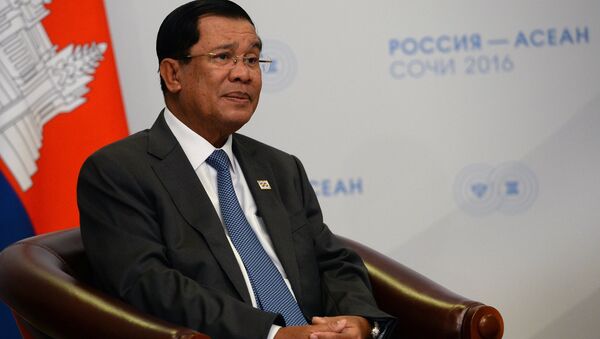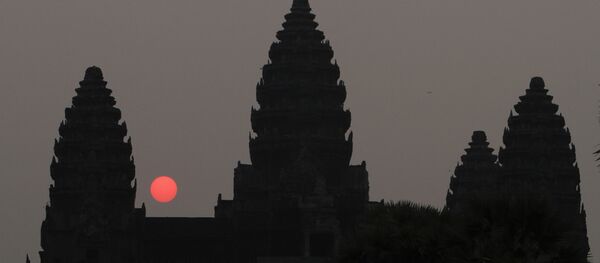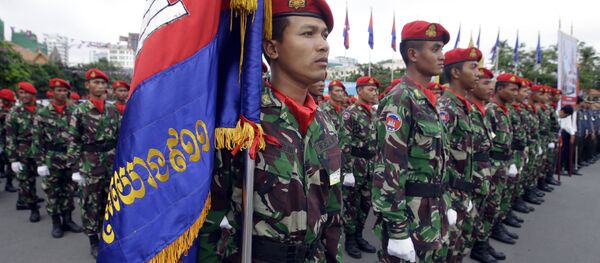The Cambodian Supreme Court earlier in November issued a ruling, which stipulated that the country's largest opposition party, the Cambodia National Rescue Party (CNRP), should be dissolved, while its elected representatives would lose their seats in the parliament and local bodies. Furthermore, 118 senior party members, including party chair Kem Sokha and exiled founder Sam Rainsy were to be banned from politics for the next five years.
Prior to the crackdown, the CNRP held 55 seats in the lower house of the national parliament, while Prime Minister Hun Sen's Cambodian People's Party had 68 seats.
PM convenes monks, officials and public in massive show of ‘stability’ in Siem Reap https://t.co/EcStuJ7w9H pic.twitter.com/gtLDqobHdW
— Cambodia (@cambodiaRR) 4 декабря 2017 г.
After dissolving CNRP and harrassing some NGOs PM HS has held ceremony to pray for peace at Siem Reap province “This shows that Cambodia is not in anarchy or a country at war-- is a country with peace, independence and political stability, and everything is running normally.” pic.twitter.com/OPHD06ssv9
— Mech Dara (@MechDara1) 2 декабря 2017 г.
Sen has ruled Cambodia since 1985, making him one of the world's longest-serving leaders.
Amid ever-growing accusations of human rights abuses and an increasingly dictatorial control, the Cambodian strongman on Sunday morning joined prayers "for stability" with 5,000 Buddhist monks at the symbolic heart of Khmer power.
Analysts had predicted a strong challenge to Hun Sen in next year's election, after the youth vote in 2013 gave the CNRP to its best electoral result. But CNRP was recently dissolved over accusations that its leaders had been plotting a "color revolution."
In response, the United States ended its support for next year's elections in Cambodia.




